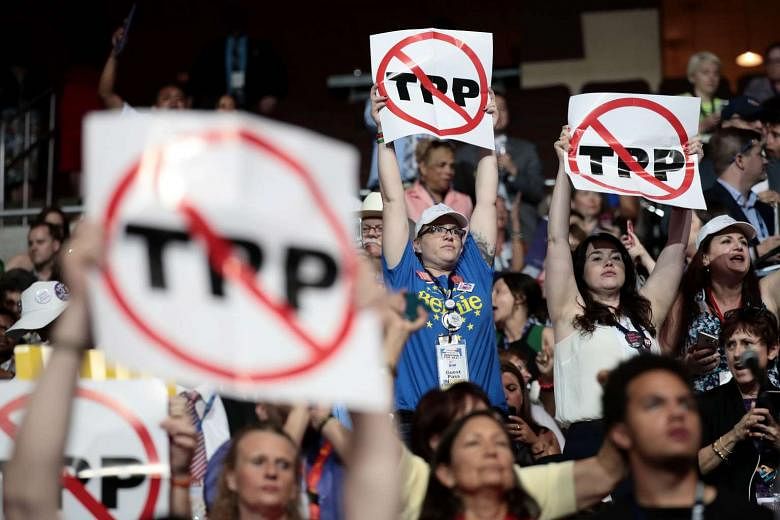WASHINGTON (WASHINGTON POST) - The White House's top economic adviser cautioned Friday (Sept 30) that the United States will surrender global leadership on trade issues to China and other countries if Congress fails to pass President Barack Obama's signature Pacific Rim trade deal before his term is up.
Speaking to a group of journalists on Friday, Jason Furman, the chairman of the White House's US Council of Economic Advisers, said that China would move forward on trade agreements that would exclude the US and establish "a worse set of rules for global trade."
"It's also not just China. Our allies will make trade deals with each other and aren't going to wait for the United States to do so, and that will divert trade away from the United States," he said.
Furman said President Obama is continuing to push for Congress to hold a vote on the Trans-Pacific Partnership in the lame-duck session, after the general election is held but before the newly elected president is sworn in.
But that possibility looks increasingly unlikely. House Speaker Paul Ryan (R-Wis.) has said that he doesn't see a point in bringing up TPP in the lame duck session, commenting "we don't have the votes."
On Thursday, Senate Majority Leader Mitch McConnell (R-Ky.) said that another discussion on trade "would have to be led by whoever the next president is."
"Let's just be honest about the political environment," McConnell said. "I believe if it were brought up this year it would be defeated anyway."
On the campaign trail, Hillary Clinton, Donald Trump and former Democratic candidate Bernie Sanders have all made their disapproval of the 12-nation trade pact clear.
In a debate Monday night at Hofstra University, Trump talked about the need for the United States to renegotiate its trade deals and called the people who are doing the job now "political hacks."
Clinton, who as secretary of state said the TPP "sets the gold standard in trade agreements to open free, transparent, fair trade", reiterated her current opposition to the deal and emphasised the need for "smart, fair trade deals".
On Friday, Furman tried to separate the specific effects of the TPP from growing anti-trade sentiment more broadly.
"The vote that we're asking Congress to do isn't 'Are you for globalisation or are you against globalisation?' It's 'Are you for TPP or against TPP,' " he said.
"And TPP is a very specific agreement ... about how we can better manage globalisation so that it levels the playing field and works in the interest of our workers."
Furman emphasised that the US is already open to exports from the 11 other countries in the pact, and that the agreement would eliminate barriers faced by American exporters, as well as raising regulatory standards for the environment, labour and state-owned enterprises in all the included countries.
He cited a study by the Peterson Institute for International Economics, a think tank in Washington, that estimated that delaying implementation of the TPP by a year would cost the US economy US$94 billion.
Furman said he sees that figure as an underestimate, since the study assumed that "the rest of the world will just wait around for America to get its act together and won't do anything in the meantime."
"What will actually happen is China will move forward on trade agreements. They'll move forward on trade agreements that exclude the US that will both set a worse set of rules for global trade. It will divert trade from the United States and leave us worse off."

